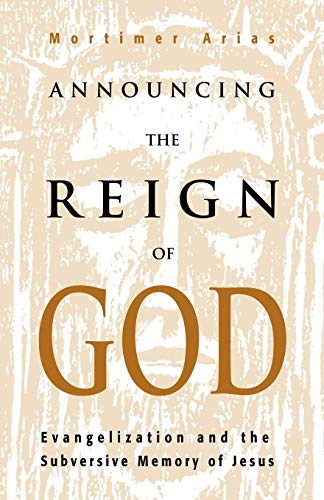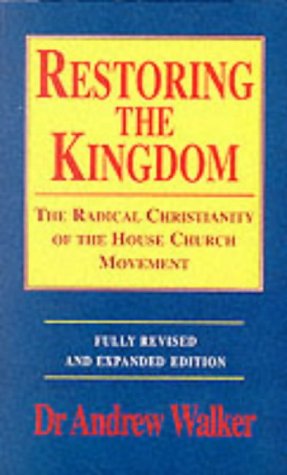Christian Origins
Written by Christopher Rowland Reviewed By Douglas de LaceyThere has long been a large gap in the literature on early Christianity: an introduction to the background and birth of the Christian church, at a level suitable for undergraduate study of theology. This volume adequately fills it. The two major sections provide firstly a comprehensive account of the life and faith of first-century Judaism; and then within this context a discussion of the emergence of that messianic sect which we now know as Christianity. In doing so, Rowland manages to cover an immense amount of ground. Whatever NT essay you are currently working on, I warrant that you will find something pertinent and helpful here.
Yet in providing such a wide coverage, Rowland has managed to do more than just give a ‘state of the game’ report of contemporary scholarship. The scholars are there, well represented where they belong, in the notes; but the text is also seeking to argue a thesis. Rowland does not pretend to take the impossible stance of disinterested observer, but feels that from his own perspective light can be shed on the admittedly obscure origins of the faith. Those who have read his earlier book, The Open Heaven, will quickly guess what that perspective is. For those of you to whom the words apocalyptic and eschatology are foreign or frightening, here is a golden opportunity to discover their rightful place in the development of early Christian thought and belief. The major strength of this approach (which Rowland would be the first to admit is by no means unique to him) is that it integrates into a united whole a wide range of concepts which otherwise strike the reader as unrelated and incoherent. Rowland is also concerned to present a picture of Judaism (largely following E. P. Sanders) at once more sympathetic to and more consonant with its own self-portrait in the extant literature. This is surely right.
So in the section on Judaism, as well as chapters on the obvious items such as the various sects, the synagogue, the festivals and so forth, there are also less immediately obvious areas such as the interpretations of scripture, apocalyptic, eschatology, the roles of angels and, perhaps most significant, the uneasy tension between pragmatism and utopianism within first-century Jewish thought and expectation. These themes appear to reappear in the next section, too, though there the layout is different. After an important introductory discussion focusing on the significance of eschatology to both Jesus and his followers, there are three parts: Jesus, Paul, and From Messianic Sect to Christian Religion. Within each of the first two, issues of both ‘introduction’ and ‘theology’ (to use the misleading categories to which the examination system of many university courses conditions us) are taken up and not only separately examined but also integrated to provide a coherent picture. The final part discusses the practices and faith of the church, and then takes up again the issue of the tension between pragmatism and utopianism. Rowland sees within the beliefs of the early church a constant struggle between these two born of the conviction that in Jesus the New Age had already dawned, a conviction yet coupled with the realization that the Old Age is still a present reality. The struggle led to internal contradictions within, e.g., the writings of Paul; contradictions which we resolve at the peril of aetiolating Paul’s own faith.
I have already indicated that I am wholeheartedly in agreement with his chosen method and broadly with the picture which he presents. If I were to take issue with him, it would be only on minor points. One inevitable problem of such wide coverage is the lack of space to defend a particular interpretation or position: so for instance we are left with no clear idea of the situation behind, or the relationships between, the johannine literature; though these clearly influence the discussion on pp. 259ff. And a little later (p. 272) when the question is raised as to whether community or property was compulsory for the Jerusalem community or not, the reader is referred to Capper (who thinks it was); yet the following discussion suggests that it was not. Hurd and Schmithals are probably not the most useful sources to be sent to if you are exploring the background of 1 Corinthians (p. 276f.), particularly since Rowland’s own position seems to be significantly closer to the one I offered in the article ‘Corinthians’ in IBD. No doubt such instances could be multiplied, but they should not detract from the value of the book as a whole.
One particularly strong point of this book is its handling of the related questions of religious experience and authority. Rowland usefully underscores the difficulties felt within the early church by those who wanted to assert their right to be authoritative interpreters of the Christian experience and doctrine: supremely Paul, of course, but one must also include in this category many of Paul’s opponents and those whom the later church was to deem heresiarchs. In a sense the problem goes right back to Jesus, whose own claims to authority were one cause of hostility against him. It was the struggle with just this issue which led to many of the disputes within the church, and therefore to the development of much of its doctrine and practice. There are many suggestive comments here; though ultimately I wonder if even Rowland does not distinguish too easily between ‘orthodoxy’ and ‘heresy’.
A fifteen-page Appendix discusses the literary sources for our period. Potentially this could have been one of the most useful parts of the book, yet I found it a disappointment. Certainly the job is not an easy one. Even working out how to classify the literature involves hard choices. But it seems strange to classify Daniel under ‘The Pseudepigrapha/Non-Rabbinic Writings’ while the Apocrypha is dealt with as a unit. And the two sections of the Rabbinic material could surely have been better coordinated. The selection is admittedly and inevitably limited, but the book of Jubilees seems an unfortunate absentee.
This is not always an easy book to read. In part this is because of the compact nature of the material; in part due to a plethora of commas which the compositor appears to have spilled over the text. It is not so much a book to read at a sitting as a source-book; a vade mecum for your journey of exploration into the birth of the church. It will certainly make that journey more interesting and more firmly based.
Douglas de Lacey
Ridley Hall, Cambridge







